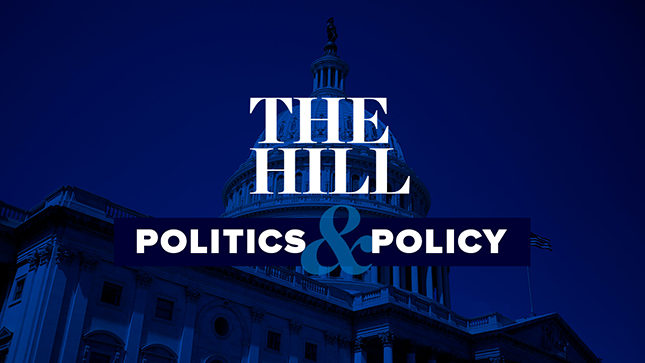This week, three congressional committee hearings will probe Russian attempts to influence our election campaign last year on social media. S.1989, the recently introduced, so-called “Honest Ads Act,” likely will feature prominently. The bill is being sold “first and foremost [as addressing] an issue of national security.”
But unless Americans exercising their First Amendment rights is now “an issue of national security,” the bill and its sponsors are not being honest about its effects. With Americans bearing 99.99 percent of its regulatory impact, the “Honest Ads Act” is a sledgehammer for a problem better addressed with a scalpel.
According to the bill’s own legislative findings and its sponsors’ remarks, more than $1.4 billion was spent on online political advertising last year. Of that amount, some $100,000 (less than 0.01 percent) has been reported thus far as coming from Russian interests. But S.1989 fails at even a perfunctory attempt to target foreign interference. Instead, the bill would almost entirely regulate Americans.
S.1989 begins by undoing the Federal Election Commission’s “internet exemption,” under which online political speech generally is not regulated unless it is a “communication placed for a fee on another person’s website.” The bill would impose a much broader standard, under which any “paid internet, or paid digital communication” could be regulated.
The change may appear subtle, but it makes a world of difference as groups making even minimal expenditures could be regulated for content on their own websites and in their mass emails. Indeed, the FEC regulated such things prior to its “internet exemption” enlightenment. Videos that groups post on YouTube and anything they publish on Facebook and Twitter also possibly could be regulated under S.1989.
S.1989 next expands regulation of so-called “electioneering communications” to include online ads that refer to elected officials and candidates within certain pre-election periods. Again, this legislative rhetoric obfuscates reality. In fact, many “electioneering communications” are non-electoral issue advocacy. For example, in a case the Institute for Free Speech litigated under the existing “electioneering communications” law, a think tank’s ads asking Coloradans to contact their senators about a pending criminal justice reform bill was held to be an election ad.
At least under current law, only TV and radio ads targeted to those eligible to vote for the referenced candidates are “electioneering communications.” Despite the bill’s legislative findings about the ability to microtarget internet ads, S.1989 would indiscriminately regulate online ads even when they are not targeted at eligible voters. Thus, ads inviting New Yorkers to contact House Ways and Means Committee Chairman Kevin Brady (R-Texas) about the pending tax bill could be regulated, as could ads asking Texans to urge Senate Minority Leader Chuck Schumer (D-N.Y.) to stop blocking judicial nominees.
S.1989 also would effectively impose a new reporting requirement — on top of the existing FEC reporting burdens — for political and issue advertising costing as little as $500. A publicly accessible database would have to contain a copy of all regulated ads and details about how each ad was targeted, when it ran, the average rate charged, the candidate or “national legislative issue of public importance” discussed, and information about the sponsor and its officers or board members.
While broadcasters already are subject to a similar “public file” requirement, the economics and policy rationale for regulating costly broadcast advertising are quite different from those for regulating low-cost internet ads. The compliance costs, when combined with the liability that S.1989 would impose on online platforms for recordkeeping errors, may drive online advertising costs out of the reach of many small grassroots organizations. Sponsors of controversial causes, like “Black Lives Matter” or tea party groups, also may find themselves targets of retaliation by opponents using the “public files” to track their online activities.
Facebook and Twitter have recently announced their own efforts to address foreign propaganda, which contain some practices similar to those mandated by S.1989. Nevertheless, these self-initiated measures are preferable to inflexible, one-size-fits-all legislation, as they can be adjusted and tailored over time to meet each platform’s unique advertising program and changing foreign threats.
Additionally, Congress can update the Foreign Agents Registration Act (FARA), which specifically addresses foreign propaganda campaigns. Like S.1989, FARA requires disclaimers, periodic registration, and copies of foreign propaganda to be filed for public inspection. However, FARA only covers foreign interests acting through agents, as the law was written before a time when foreign interests could directly purchase internet advertising without any intermediary. This can be easily fixed, and unlike S.1989, amending FARA would not primarily regulate Americans.
Foreign interference with our election campaigns is a serious issue, and the sponsors of S.1989 are doubtlessly well-intentioned. But instead of specifically addressing foreign interests, the bill would primarily regulate Americans’ political speech rights, thereby making America look just a little bit more like Russia.
This post originally ran in The Hill on October 30th 2017.














